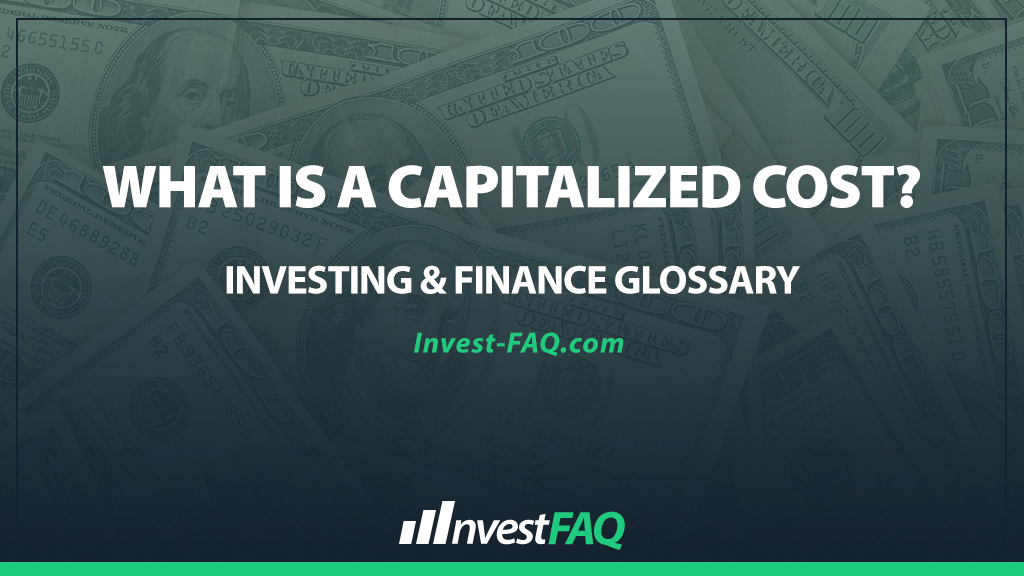
Capitalized Cost
Contents
A capitalized cost refers to an expense that is added to the cost basis of a fixed asset on a company’s balance sheet, rather than being expensed immediately in the income statement. This accounting treatment allows the cost to be expensed over the useful life of the asset through depreciation or amortization, aligning the expense recognition with the asset’s period of benefit.
Businesses capitalize costs to more accurately reflect their financial position and performance.
By capitalizing significant expenses related to the acquisition, improvement, or extension of the useful life of fixed assets, companies ensure that their financial statements more accurately represent the economic benefits derived from those assets over time.
This practice supports better financial analysis, decision-making, and compliance with accounting standards.
Example of a Capitalized Cost
Let’s consider “GreenEnergy Solutions,” a company that purchases a new piece of manufacturing equipment for $100,000. The equipment has an expected useful life of 10 years. In addition to the purchase price, the company incurs $10,000 in installation and setup costs.
Capitalizing the Total Cost: GreenEnergy Solutions capitalizes the total cost of $110,000 ($100,000 for the equipment plus $10,000 for installation) as a fixed asset on its balance sheet.
Depreciation: The company then depreciates this capitalized cost over the equipment’s 10-year useful life, resulting in an annual depreciation expense of $11,000.
In this scenario, capitalizing the total cost of the equipment, including its purchase and installation, allows GreenEnergy Solutions to spread the recognition of this expense over the asset’s useful life.
This treatment matches the cost with the revenue generated by using the equipment, providing a more accurate depiction of the company’s profitability and asset utilization.
It prevents a significant one-time expense from distorting the company’s financial results in the acquisition year, offering a clearer view of its long-term financial health.
Significance for Investing & Finance
Capitalized costs hold significant importance in accounting for several reasons:
Asset Valuation: Capitalizing costs related to fixed assets ensures that the balance sheet accurately reflects the company’s investment in assets expected to generate future economic benefits.
Expense Matching: This approach adheres to the matching principle, ensuring expenses are recognized in the same period as the revenues they help generate, leading to more accurate profitability measures.
Strategic Decision-Making: By providing a more realistic picture of financial performance and asset value, capitalized costs support better strategic planning, budgeting, and investment analysis.
Regulatory Compliance: Properly capitalizing costs and adhering to depreciation or amortization schedules is essential for compliance with accounting standards, such as GAAP or IFRS, affecting audit outcomes and investor confidence.
In summary, capitalized costs are a crucial aspect of accounting, enabling businesses to more accurately reflect the acquisition and utilization of long-term assets.
This practice enhances the quality of financial reporting, supports compliance with accounting standards, and aids in strategic decision-making by providing a true representation of a company’s financial position and performance.
FAQ
What criteria determine whether a cost should be capitalized or expensed immediately?
A cost is capitalized if it provides a future economic benefit, extending the asset’s useful life or improving its value, whereas costs that provide only immediate, short-term benefits or are routine maintenance are expensed in the period incurred.
How does capitalizing a cost affect a company’s financial statements in the year of expenditure?
Capitalizing a cost increases the asset side of the balance sheet and spreads the expense over the asset’s useful life through depreciation or amortization, avoiding a significant impact on net income in the year of expenditure.
Can capitalized costs be adjusted after they are initially recorded on the balance sheet?
Yes, capitalized costs can be adjusted through impairment if the asset’s market value decreases significantly, or through adjustments in depreciation methods and useful life estimates, reflecting changes in usage patterns or technological advancements.
What impact do capitalized costs have on a company’s tax liability?
Capitalized costs affect a company’s tax liability by reducing taxable income over several years through depreciation or amortization deductions, rather than immediately, potentially smoothing tax expenses over time and providing tax planning opportunities.
